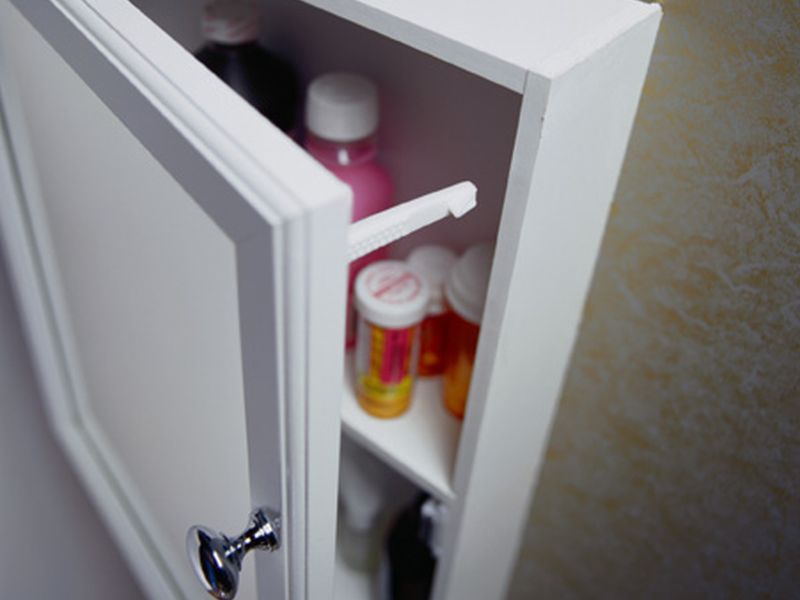TUESDAY, March 13, 2018 (HealthDay News) — Every day, more than 300 children are treated in U.S. emergency rooms for accidental poisoning, and two children die from it.
Reports of youngsters getting sick after eating colorful laundry and dishwasher detergent pods that they thought were candy have renewed warnings about keeping all cleaning products both out of sight and out of reach — behind cabinet doors with childproof locks.
But there are other, less obvious poisoning risks at home: everyday medications, even those formulated for children.
Follow these key safety steps if you have little ones living in your home or visiting you:
- Don’t put out doses of your medications, even vitamins, in advance. If you use a pill organizer, don’t leave it on a counter.
- Buy drugs with childproof safety caps and carefully click them every time you take a dose.
- Store all medications — both prescription and over-the-counter drugs — in a cabinet far from a child’s reach.
- Each time you give medicine to a child, read the label directions and warnings. Remember that the correct dose often changes as a child grows.
For the safety of all family members, regularly go through and organize household medications. The U.S. Centers for Disease Control and Prevention suggests throwing out unneeded or expired drugs by disguising them in coffee grounds or kitty litter. Or turn them in at “Drug Take-Back” events — call your local health department for information.
Even if you follow all precautions, accidents happen. Have the national Poison Control Center number on every phone in your home and programmed into your cellphone. It’s 1-800-222-1222. Call it if you think your child has been poisoned but is awake and alert. If your child has collapsed or isn’t breathing, call 911 immediately.
More information
The U.S. Centers for Disease Control and Prevention has more advice to prevent poisonings in the home.
Copyright © 2026 HealthDay. All rights reserved.

